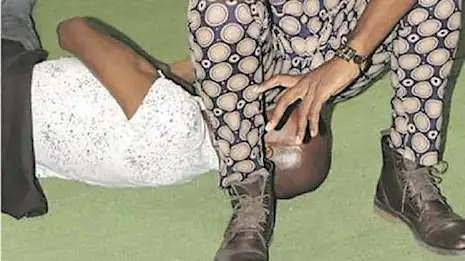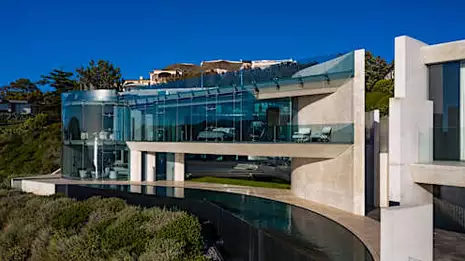Criminal case opened against FNB and First Rand Bank
- Get link
- X
- Other Apps

Criminal case opened against FNB and First Rand Bank
By Baldwin Ndaba 
Johannesburg - A case of corruption and money laundering was opened against First Rand Bank and First National Bank (FNB)on Tuesday for allegedly providing banking facilities to EOH, despite reports of the company being implicated in acts of corruption.
The case was opened by Adil Nchabeleng of Transform RSA at the Johannesburg Central police station on Tuesday. Nchabeleng was joined by Reginald Letswalo of Sanco, Dumisani Thango of Umkhonto we Sizwe Military Veterans and Tahir Maepa of PSCU_SA
All of them came to the police station armed with a charge sheet which was presented to the police officers who registered the case.
Nchabeleng said his organisation took the action following media reports that the Special Investigating Unit (SIU) has asked EOH to return R40 million to the state after the company obtained an irregular tender with the Department of Defence.
“An investigation by the SIU found that the Microsoft licensing agreement between EOH and the Department of Defence amounted to R1.2 billion, found that EOH, its employees, had participated in bid-rigging and engaged in over pricing by unlawfully overcharging the Department of Defence by an amount of R40m.
“EOH accepted the SIU’s findings, signed acknowledgement of debt, and undertook to pay back an amount of R41 676 492.92 to the Department of Defence,” Nchabeleng said.
He added that in November last year, EOH chief executive Stephen van Coller testified at the Zondo Commission and admitted that legal firm ENSafrica conducted a forensic investigations into EOH’s contract with the City of Johannesburg, the National Prosecuting Authority and the Department of Defence
Nchabeleng said the legal firm investigations revealed over-invoicing and overcharging for Microsoft licences.
He further added that Van Coller admitted corruption within EOH.
“EOH had made payments from its accounts held with FNB to various government officials, politicians and politically exposed persons in a corrupt manner. Accordingly, at all relevant times, was aware of, alternatively, was reasonably expected to be aware of, the suspicious payments made by EOH from its bank account to several government officials, politicians and politically exposed persons, and as such had a legal obligation to report the suspicious payments in terms of the Prevention and Combating of Corrupt Activities Act (Precca),” Nchabeleng said.
According to him, in terms of the Code of Banking Practice, “FNB was compelled to close the EOH bank account considering that it had reason to believe that the bank account was being used for illegal purposes”.
Nchabeleng said First Rand Bank and FNB are the bankers of EOH and the company has the following facilities with FNB: Secured bank loans through security SPVs amounting to R2.3bn; bank overdraft of R115m; unsecured bank loans of R350m; secured bank loan over property of R6m; vendor acquisition of R44m; other non-interest of R49m; and undrawn facilities of R400m, with no overdraft on the balance sheet, therefore the assumed total is R400m.
“Notwithstanding the findings of the forensic investigation and the SIU demonstrating that EOH was involved in corrupt activities, there are still no changes in facilities offered by FNB to EOH, and their banking accounts remain active.
“It is an explicit requirement of the Banks Act and Precca that when there is a case of money laundering, illicit money flows, and when a bank is aware of corruption, it should act immediately. FNB failed to act against EOH and its directors, and EOH and its directors continue to bank with FNB, and they are the principal ledger of EOH in the amount of R1bn,” Nchabeleng said.
At the time of publication, FNB was not made aware of the charge laid at the police station on Tuesday.
Nchabeleng said they would stage a strike on Thursday against all banks targeting black-owned businesses.
READ THE FULL AFFIDAVIT BELOW:







baldwin.ndaba@inl.co.za
Political Bureau
SHARE THIS ARTICLE:



Comments
Post a Comment